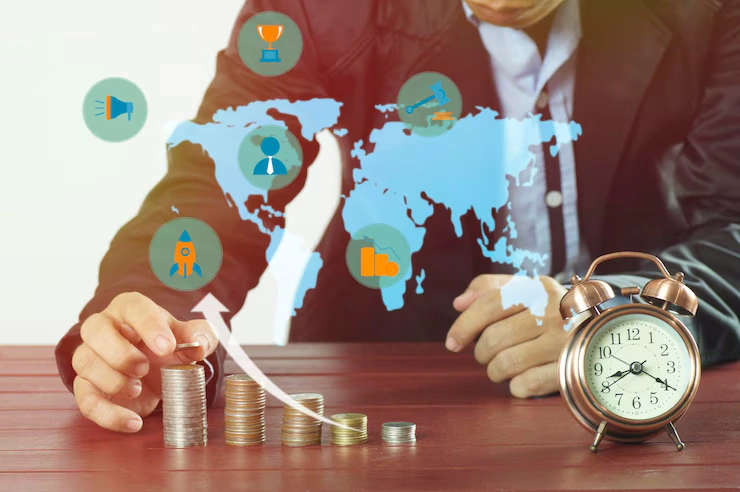
Tariffs in 2025: How New Trade Policies Could Impact Investors
Trade plays a big role in today’s global economy. When countries place tariffs on goods, it changes prices and business plans. A tariff is a tax on products that come from other countries. It makes imported goods more costly. That cost often passes to companies or buyers. Tariffs in 2025 are becoming a big issue again. Many governments are changing their trade policies. They want to Protect Local Industries or respond to global politics. These moves can help some companies but hurt others.
For investors, this creates both risks and chances. In this article, we explain what tariffs in 2025 are, why they matter, and how they may affect your investments. We use easy words, real examples, and short sentences. This will help you understand what to watch for in the months ahead.
What Are Tariffs, and Why Are They Used?
A tariff is a fee added to goods when they cross borders. It’s a way for governments to raise money and protect local businesses. When a country adds a tariff, it makes foreign goods cost more. That can help local products look cheaper. In 2025, tariffs are back in the news. Countries are using them more often. Some want to support their factories. Others are reacting to trade wars or tech battles. And a few just want to reduce imports and grow their local jobs. Tariffs in 2025 are not just a simple tax. They are a sign of how countries compete in global markets. That’s why investors care. These policies can change prices, trade flows, and business costs.

Why Investors Are Watching Tariffs in 2025
Investors care about growth and profit. Tariffs in 2025 can hit both. If a company has to pay more for parts, its costs go up. That can lead to smaller profits. If it raises prices, it might lose customers. Either way, stock prices may fall. Some Firms Move Factories to other countries to avoid tariffs. This shift takes time and money. During the move, business may slow. That also worries investors. Here’s a simple case. Imagine a company that makes phones. It buys chips from another country.
If tariffs go up on those chips, the phone becomes more costly to make. The company may sell fewer phones. That hurts sales and share prices. So, when tariffs in 2025 change, investors must watch. It’s not just about trade. It’s about money, jobs, and the future of companies.
What’s Happening with Tariffs Right Now?
Across the world, governments are updating trade rules. Some of the biggest changes in 2025 include:
- The U.S. is raising tariffs on electric vehicles from China. This will make Chinese EVs more expensive in American markets.
- Europe is setting new rules on high-tech goods. Companies that make chips or servers may see new taxes.
- India added tariffs to some farm goods. It wants to help its local farmers by keeping foreign food out.
- Australia changed some import taxes on steel and tools. This supports its local builders and suppliers.
Each of these moves affects global trade. They also touch companies listed on stock exchanges. Tariffs in 2025 are not just local, they send waves across the world. Investors who know what’s happening can protect their money. Those who ignore it may face losses.

Which Sectors Are Most at Risk?
Not all companies feel tariffs the same way. Some sectors are hit harder than others.
- Manufacturing: Tariffs on raw materials like steel or aluminum raise building costs. Companies that make cars, planes, or machines may feel the pinch.
- Technology: Many tech firms depend on parts from Asia or Europe. If tariffs hit chips, batteries, or wires, these firms must pay more.
- Farming and food: Tariffs on meat, grains, or fruits change food trade. Farmers may sell less abroad. This hurts farm income.
- Retail: Stores that buy goods from other countries may need to charge more. This can hurt sales and profits.
If you own stocks in these areas, watch tariff news closely. Tariffs in 2025 can change fast. A small rule change can mean big shifts in prices.
How to Protect Your Money from Tariff Shocks
Tariffs create risk. But smart investors can reduce that risk.
Here are simple ways to stay ready:
- Follow the news. Tariffs change often. Stay up to date on trade talks and deals.
- Don’t invest in one place. Spread your money across sectors and regions. If one area falls, another may rise.
- Choose strong companies. Some businesses can adjust faster. They Switch Suppliers or change where they make goods.
- Look at global funds. These funds mix assets from many places. They can handle trade shocks better.
- Talk to a financial advisor. If you feel unsure, get help. Advice can protect you from big mistakes.
Tariffs in 2025 don’t have to hurt your investments. But you must prepare.

Can Tariffs in 2025 Create New Opportunities?
Yes. Tariffs often help local companies grow. If foreign goods cost more, people buy local. For example, if the U.S. adds a tariff on Chinese solar panels, American solar firms may sell more. That can boost their sales and stock prices. Also, tariffs may push companies to build factories at home. This helps construction, shipping, and jobs. Investors in those sectors may gain. Even currency markets can shift. When tariffs change, currencies can rise or fall. Traders who understand this may make gains. So while tariffs in 2025 bring some pain, they can also bring gains. You just need to look in the right places.
Conclusion: What to Do Next
Tariffs in 2025 are more than just taxes. They affect how goods are made, sold, and priced around the world. For investors, this means watching how trade policies change and how companies react. Some businesses may face higher costs. Others may find new chances to grow. That’s why it’s important to stay informed, stay flexible, and think ahead. If you invest smartly, you can reduce risks and even find new opportunities in the middle of change. Tariffs in 2025 may bring both problems and profits. The key is to know the difference and act wisely.
FAQ’s
1. What are tariffs in simple words?
Tariffs are extra taxes on goods that come from other countries.
2. Why are tariffs in 2025 important for investors?
They change prices and company profits, which can affect stock values.
3. Which industries are hit hardest by tariffs in 2025?
Manufacturing, tech, farming, and retail may feel the most impact.
4. Can tariffs ever help investors?
Yes. Local companies may grow if foreign goods become more costly.
5. How can I protect my money from tariff risks?
Watch the news, spread your investments, and choose strong companies.











Lilly Vincent
This is really interesting, You’re a very skilled blogger. I’ve joined your feed and look forward to seeking more of your magnificent post. Also, I’ve shared your site in my social networks!